GWS Giants 2021: List manager Jason McCartney opens up on mass exodus and list decisions
The Giants lost a plethora of talent players last off-season — a familiar storyline throughout their history. List boss Jason McCartney reveals the intricacies of the 2020 trade period.
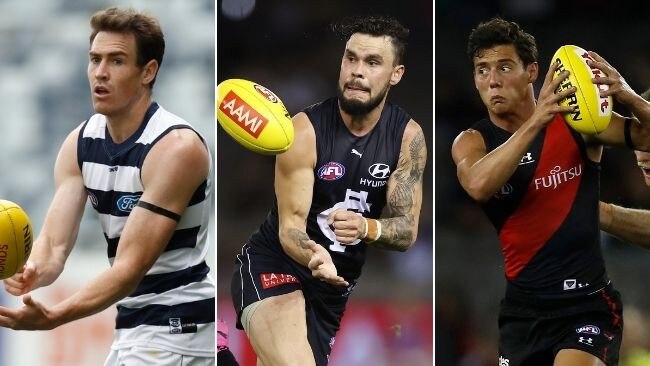
Trade HQ
Don't miss out on the headlines from Trade HQ. Followed categories will be added to My News.
In a previous football life, Jason McCartney plotted how best to vulture Greater Western Sydney’s vast talent riches.
McCartney’s now spent more than three years overseeing the Giants’ list decisions – after previously being in that role at the Western Bulldogs – and spends significant time trying to fend off rivals’ advances.
However, it’s never quite as straightforward as that, or the full story, for a club that faces challenges only Gold Coast and, in some ways, the Sydney Swans can relate to.
Jeremy Cameron (Geelong), Zac Williams (Carlton), Aidan Corr (North Melbourne), Jye Caldwell (Essendon), Jackson Hately (Adelaide) and Zac Langdon (West Coast) all joined opposition clubs since last season ended.
Watch the 2021 Toyota AFL Premiership Season. Every match of every round Live on Kayo. New to Kayo? Try 14-Days Free Now >
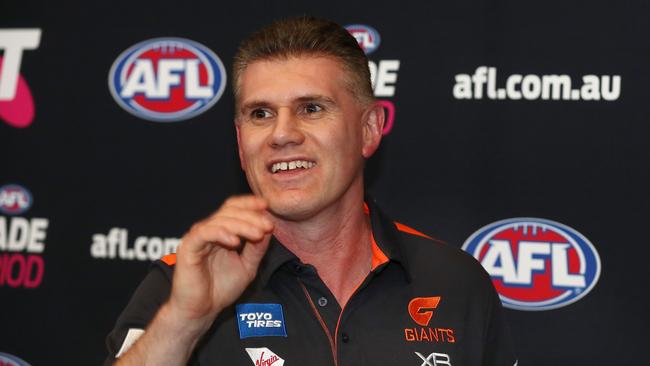
Some were stars, others valuable regulars or role players, while Caldwell and Hately were first-round draft picks who had differing senior chances.
Cameron and Williams hurt most of all. GWS even matched the Cats’ restricted free agency offer to Cameron to force them into a trade scenario.
The reasons for their exits ranged from wanting to go home, seeking greater opportunity or receiving a too-good-to-refuse offer. It’s the story of McCartney and co’s life.
This latest exodus has been compared to what McCartney endured at the end of his first full season in charge in 2018, when the Giants traded Dylan Shiel, Rory Lobb, Tom Scully and Will Setterfield.
Sandwiched between the two years was an inaugural Grand Final appearance.
Yet, as above, there’s always more to it than meets the eye.
The 2018 quartet either wanted to go home or were keen to eventually, so their situation became an opportunity to create something mutually beneficial, since GWS’s salary cap would’ve busted otherwise.
“There were a couple of boys in this last group who left who we were prepared to do what we could to manage it, so they could stay at the club,” McCartney told The Daily Telegraph this week.
“Whereas I worked with those other boys from 2018, with their managers, behind the scenes, to get it in that position where they were probably always going to go at some stage.
“They were all still in contract, but we brought that forward a bit, so it was pretty much a handshake agreement to do it now – and that helped us.”
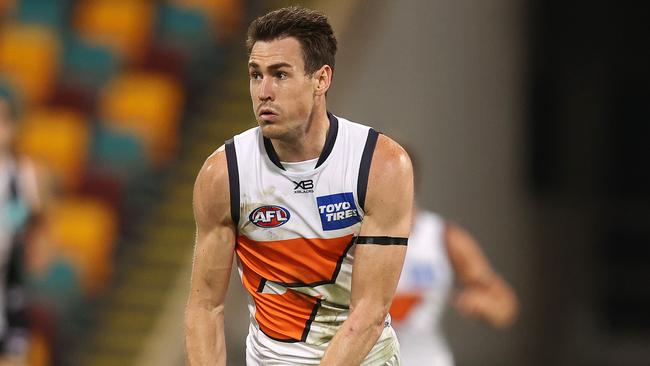
Williams was arguably the most interesting case, because he was not only a rookie-lister who came good, but an Academy product who grew up in Narrandera, in GWS’s Riverina region.
“It was compelling, (Carlton’s) offer. We thought we had a pretty compelling offer on the table as well, but it’s just the reality of it all,” McCartney said.
“You don’t want to lose him, but then if you try to find the positives out of it: he was a rookie who gave great service for eight years and we turned that into a first-round pick.
“But it starts again, because you don’t just go and replace Zac straightaway.”
AFL chief executive Gillon McLachlan spoke during the 2018 trade period amid the Giants’ player losses, which sparked widespread doom and gloom about the club’s prospects.
McLachlan took a different approach, saying the departures were just “a reflection of the amount of talent they’ve had”.
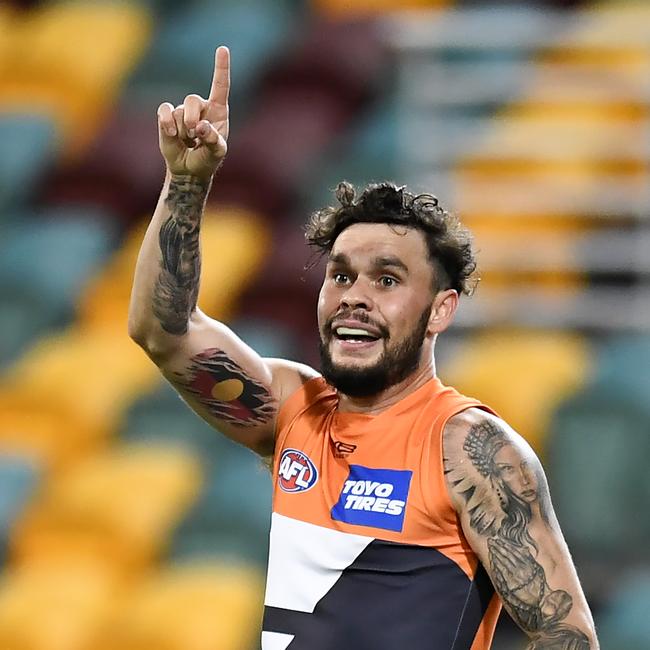
“Their best team next year is still as talented as any in the league – that’s how the salary cap works. That’s how it played out,” the AFL’s CEO said.
“All the other clubs were worried about a super team that would win five premierships in a row (when GWS started in 2012 with significant draft concessions).
“The way the system works is that the salary cap brings that talent into a more normalised number. They’ve got an incredibly talented team and they’ll look to win the flag next year.”
Leon Cameron’s men went on to contest the 2019 Grand Final, albeit suffering a landslide defeat to competition powerhouse Richmond.
That’s something McCartney and others are trying to remind everyone of, as doomsayers predict their demise once more. They are still very much aiming for finals this season.
Still at the club are Lachie Whitfield, Nick Haynes, Josh Kelly, Toby Greene, Stephen Coniglio, Tim Taranto and Jacob Hopper, plus an emerging crew that includes Tom Green, Lachie Ash, Sam Taylor and Harry Perryman.
Another three first-round draftees walked into Sydney Olympic Park this pre-season: Tanner Bruhn, Conor Stone and Ryan Angwin. Bruhn will make his AFL debut against St Kilda on Sunday.
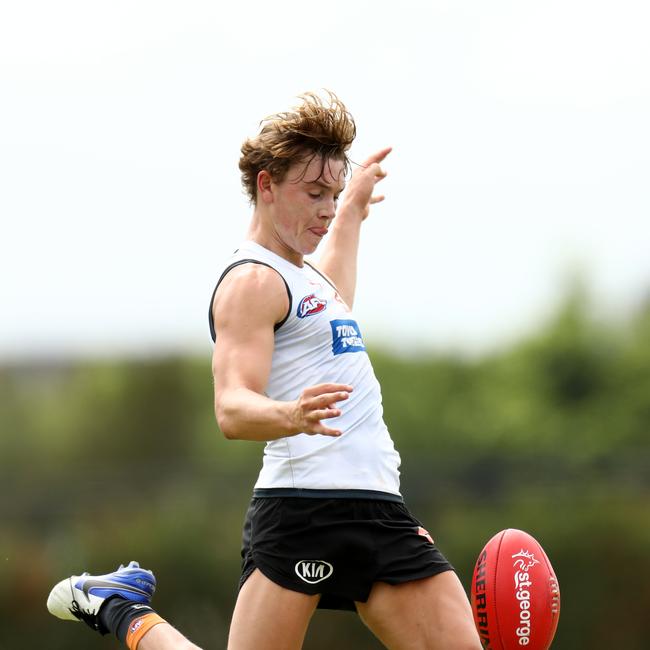
It’s both a blessing and a curse.
If Cameron, Williams and the others didn’t leave last year, then someone else would have had to, McCartney admits, but they make sure to get quality compensation where possible.
That’s just the nature of the Giants’ salary cap situation, but the list boss – who doubles as the club’s head of football – says it’s in better working order these days.
The AFL’s decision to strip Sydney and GWS of their cost-of-living allowance still rankles both clubs, and at least some of the problems of recent years owe to that.
The Giants call themselves “more of a seller than a buyer”, so they aren’t about to launch any audacious bids for a Lance Franklin or Kurt Tippett-type.
They instead focus on bargains, such as Matt de Boer, Lachie Keeffe and even Jesse Hogan, who cost them the not-so-princely sum of draft selection 54 – two years after Fremantle packaged picks six and 23 for Hogan.
The Swans have enjoyed similar success with the strategy.
“We do go to market, but generally our investment is with our group here and the young players and that’s something that, I suppose, us and the Swans are constantly wrestling with,” McCartney said.
“I know our list profile, and 70 per cent of our list is from interstate, so with that, to retain, you end up paying a bit more than you probably would if you were sitting at a Victorian club.”
It’s another reminder of why the Northern academies are so vital to the ongoing success of GWS, Sydney, Brisbane and Gold Coast.
But, again, in the Giants’ case, it’s still not simple.
Kieren Briggs, Jack Buckley, Nick Shipley and Jake Stein are the only four listed footballers from Sydney, with most of the graduated Academy crop from border towns, including many who went to school in Victoria.
Until that changes, player retention will likely be an ongoing challenge for McCartney and Greater Western Sydney, but the evidence suggests they’re largely winning.
More Coverage
Originally published as GWS Giants 2021: List manager Jason McCartney opens up on mass exodus and list decisions



